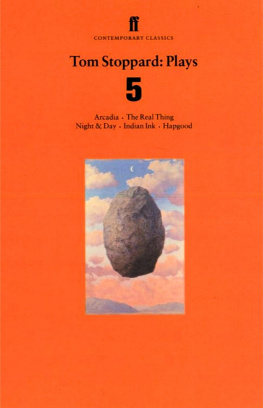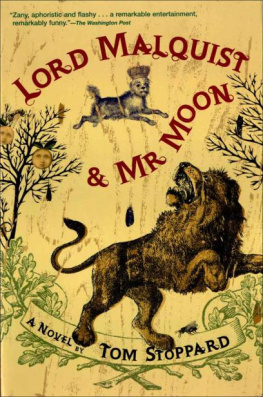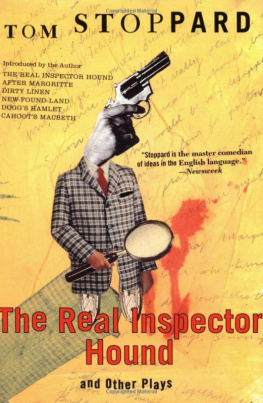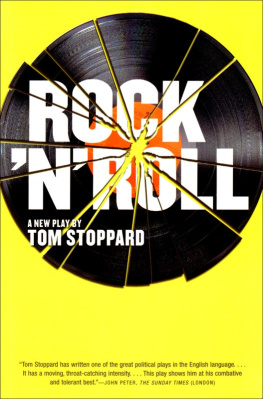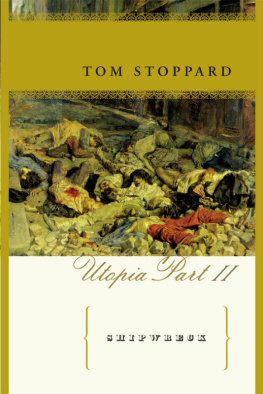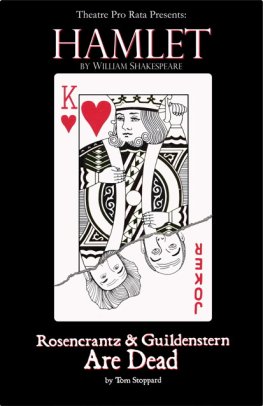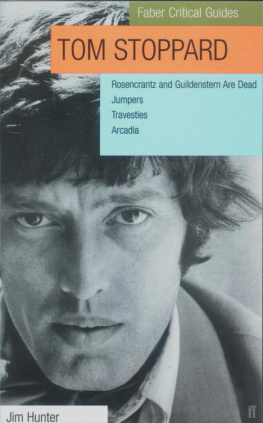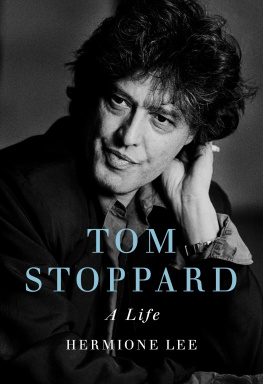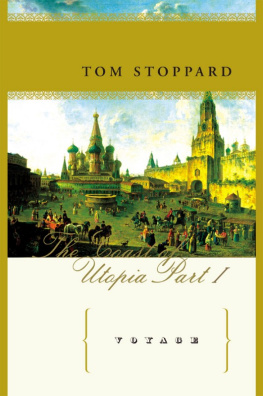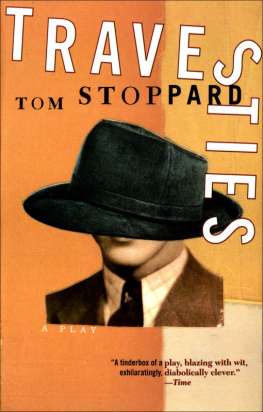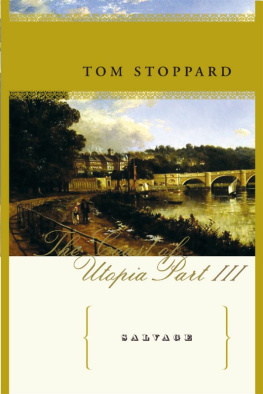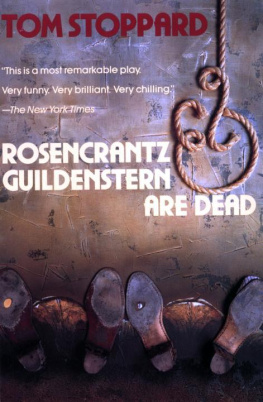Every Good Boy
Deserves Favor
AND
Professional
Foul
WORKS BY TOM STOPPARD PUBLISHED BY GROVE PRESS
Every Good Boy Deserves Favor and Professional Foul
Jumpers
The Real Inspector Hound and Other Plays
Rosencrantz and Guildenstern Are Dead
Travesties
The Invention of Love
Every Good Boy Deserves Favor
A PLAY FOR ACTORS AND ORCHESTRA
and
Professional Foul
A PLAY FOR TELEVISION
by Tom Stoppard

Copyright 1978 by Tom Stoppard
All rights reserved. No part of this book may be reproduced in any form or by
any electronic or mechanical means, including information storage and
retrieval systems, without permission in writing from the publisher, except by
a reviewer, who may quote brief passages in a review. Any members of
educational institutions wishing to photocopy part or all of the work for
classroom use, or publishers who would like to obtain permission to include
the work in an anthology, should send their inquiries to Grove/Atlantic, Inc.,
841 Broadway, New York, NY 10003.
CAUTION: Professionals and amateurs are hereby warned that these plays are
subject to royalties. They are fully protected under the copyright laws of the
United States, Canada, United Kingdom, and all British Commonwealth
countries, and all countries covered by the International Copyright Union, the
Pan-American Copyright Convention, and the Universal Copyright
Convention. All rights, including professional, amateur, motion picture,
recitation, public reading, radio broadcasting, television, video or sound
taping, all other forms of mechanical or electronic reproduction, such as
information storage and retrieval systems and photocopying, and rights of
translation into foreign languages, are strictly reserved.
First-class professional applications for permission to perform them, etc., must
be made in advance, before rehearsals begin, to Peters, Fraser and Dunlop Ltd.
503/4 The Chambers, Chelsea Harbour, London SW10 OXF, and stock and
amateur applications for permission to perform them, etc., must be made in advance,
before rehearsals begin to Samuel French, Inc., 45 West 25th Street,
New York, NY 10010.
Published simultaneously in Canada
Printed in the United States of America
Library of Congress Cataloging-in-Publication Data
Stoppard, Tom.
Every good boy deserves favor and Professional foul.
I. Stoppard, Tom. Professional foul. 1978.
II. Title. III. Title: Professional foul.
PR6069.T6E9 1978 822.914 77-92786
eBook ISBN-13: 978-0-8021-9527-2
Grove Press
841 Broadway
New York, NY 10003
INTRODUCTION
Every Good Boy Deserves Favour is the title of a work of which the text is only a part. The sub-title, A Play for Actors and Orchestra, hardly indicates the extent to which the effectiveness of the whole depends on the music composed by Andr Previn. And it is to him that the work owes its existence.
As the principal conductor of the London Symphony Orchestra, Mr Previn invited me in 1974 to write, something which had the need of a live full-size orchestra on stage. Invitations dont come much rarer than that, and I jumped at the chance. It turned out to be the fastest move I made on the project for the next eighteen months.
Usually, and preferably, a play originates in the authors wish to write about some particular thing. The form of the play then follows from the requirements of the subject. This time I found myself trying to make the subject follow from the requirements of the form. Mr Previn and I agreed early on that we would try to go beyond a mere recitation for the concert platform, and also that we were not writing a piece for singers. In short, it was going to be a real play, to be performed in conjunction with, and bound up with, a symphony orchestra. As far as we knew nobody had tried to do anything like that before; which, again, is not the preferred reason for starting a play, though I confess it weighed with me.
Having been given carte blanche, for a long time the only firm decision I was able to make was that the play would have to be in some way about an orchestra. For what play could escape folie de grandeur if it came with a hundred musicians in attendance but outside the action? And while it is next to impossible to justify an orchestra, it is a simple matter to make it essential. Accordingly, I started off with a millionaire who owned one.
My difficulty in trying to make the cart pull the horse was aggravated by the fact that I knew nothing about orchestras and very little about serious music. I was in the position of a man who, never having read anything but whodunnits, finds himself writing a one-man show about Lord Byron on a carte blanche from an actor with a club foot. My qualifications for writing about an orchestra amounted to a spell as a triangle-player in a kindergarten percussion band. I informed my collaborator that the play was going to be about a millionaire triangle-player with his own orchestra.
This basic implausibility bred others, and at the point where the whimsical edifice was about to collapse I tried to save it by making the orchestra a mere delusion of the millionaires brain. Once the orchestra became an imaginary orchestra, there was no need for the millionaire to be a millionaire either. I changed tack: the play would be about a lunatic triangle-player who thought he had an orchestra.
By this time the first deadline had been missed and I was making heavy weather. I had no genuine reason for writing about an orchestra, or a lunatic, and thus had nothing to write. Music and triangles led me into a punning diversion based on Euclids axioms, but it didnt belong anywhere, and I was ready to call my own bluff.
This is where matters stood when in April 1976 I met Victor Fainberg. For some months previously I had been reading books and articles by and about the Russian dissidents, intending to use the material for a television play, and so I knew that Mr Fainberg had been one of a group of people arrested in Red Square in August 1968 during a peaceful demonstration against the Warsaw Pact invasion of Czechoslovakia. He had been pronounced insanea not unusual fate for perfectly sane opponents of Soviet tyrannyand in 1974 he had emerged into exile from five years in the Soviet prison-hospital system. He had written about his experiences in the magazine Index On Censorship, an invaluable, politically disinterested monitor of political repression the world over. For Mr Fainberg freedom was, and is, mainly the freedom to double his efforts on behalf of colleagues left behind. His main concern when I met him was to secure the release of Vladimir Bukovsky, himself a victim of the abuse of psychiatry in the USSR, whose revelations about that abuse had got him sentenced to consecutive terms of prison, labour camp and internal exile amounting to twelve years.
Exceptional courage is a quality drawn from certain people in exceptional conditions. Although British society is not free of abuses, we are not used to meeting courage because conditions do not demand it (I am not thinking of the courage with which people face, say, an illness or a bereavement). Mr Fainbergs single-mindedness, his energy (drawing more on anger than on pity) and his willingness to make a nuisance of himself outside and inside the walls of any institution, friend or foe, which bore upon his cause, prompted the thought that his captors must have been quite pleased to get rid of him. He was not a man to be broken or silenced; an insistent, discordant note, one might say, in an orchestrated society.
Next page

